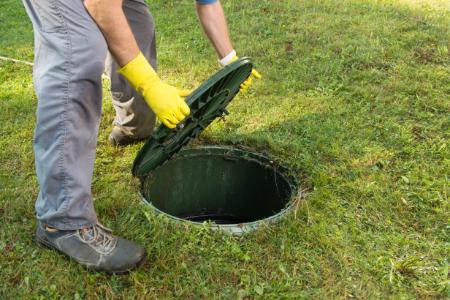Hydro-Jetting vs. Snaking for Drain Cleaning in Pittsburgh: When Does Each Make Sense?

Clogs show up at the worst times. If drains are slow or backing up in your Pittsburgh home, you’ll hear two fixes most often: snaking and hydro-jetting. Both are effective when used in the right situation. This guide explains the differences, where each method shines, and how a pro decides the best fit for your home’s pipes.
When you want it handled quickly and correctly, schedule professional drain cleaning with Mitchell Plumbing, Heating and Cooling. And if you’re comparing options for drain cleaning in Pittsburgh, use this breakdown to make an informed decision before you book.
What Hydro-Jetting Actually Does
Hydro-jetting uses a specialized hose and multi-directional nozzles to blast pressurized water through your line. The water scours pipe walls to remove grease, soap scum, scale, and intruding roots. Think of it like a deep clean for your plumbing that restores flow and reduces the chance of near-term clogs.
A trained technician controls pressure to match pipe condition and material. On intact PVC or cast iron laterals, a proper jet can remove years of buildup that a cable can’t fully clear. Hydro-jetting is also ideal for long runs and main sewer lines that show recurring blockages.
What Drain Snaking Actually Does
Snaking (also called cabling or augering) uses a rotating steel cable to break through or grab a clog. It’s a targeted, minimal-force approach that is well-suited for simple, localized blockages near fixtures like sinks, tubs, and showers.
Because a snake primarily opens a path through the obstruction, it may leave residue on the pipe walls. That’s fine for a one-off clog but can allow buildup to return sooner if deeper deposits remain further down the line.
Hydro-Jetting vs. Snaking: Side-by-Side in Pittsburgh Homes
- Best for tough, recurring blockages: hydro-jetting. Best for minor, localized clogs: snaking.
- Cleaning depth: hydro-jetting scrubs pipe walls; snaking primarily restores flow through the blockage.
- Pipe condition: hydro-jetting requires intact piping; snaking is gentler for older or fragile lines.
- Common use: jetting for main sewer lines and heavy grease; snaking for bathroom and kitchen branch lines.
- Longevity: jetting often reduces repeat calls by removing buildup; snaking is a fast fix for single clogs.
How Pipe Material and Age Affect the Choice
Older Clay and Cast Iron Are Common Around Pittsburgh
Many homes in neighborhoods like Squirrel Hill, Shadyside, and the South Hills still rely on clay or cast iron laterals. These materials can develop scale, minor offsets, and root intrusions, especially in yards with mature trees. Hydro-jetting can clear these issues when the pipe is intact, but if there’s a collapse or large offset, mechanical snaking or a repair plan may be safer until the section is replaced.
Newer neighborhoods with PVC drains typically respond very well to a controlled jet. Smooth pipe walls and tight joints allow the nozzle to glide through and remove grease and debris that cause slowdowns after heavy kitchen use or holiday entertaining.
When Hydro-Jetting Makes Sense
Choose jetting when problems are widespread or keep coming back. If multiple fixtures gurgle or you notice periodic sewer odors followed by slow drains, residue is likely coating your line. Jetting clears the entire diameter, so flow returns near original levels.
It’s also effective for restaurants and home kitchens where grease builds up, and for main sewers with light root intrusion. In these cases, a snake might poke a hole but leave material behind. Hydro-jetting is more thorough.
When Snaking Makes Sense
Snaking is a smart first step for a single, recent clog near a sink, tub, or shower. It’s quick, precise, and easier on older pipes that might not tolerate high pressure. A cable can also retrieve foreign objects that a jet would push farther down the line.
If a bathroom backs up after a big family weekend or a slow sink appears after a disposal jam, snaking often restores normal use fast. If clogs return, that’s a sign to consider a full cleaning with a jet.
Inspection Comes First
Camera inspection is essential before high-pressure cleaning whenever pipe condition is uncertain. A clear look at the line helps the technician set pressure appropriately and confirms whether structural defects exist. If the pipe is damaged, a repair plan or gentler method is safer than high pressure.
Want more background on warning signs? This quick read on the signs of clogged pipes explains what triggers a service call and why timing matters for your plumbing system.
Seasonal And Local Considerations
Pittsburgh’s freeze-thaw cycles can stress older joints, and spring rains can highlight partial blockages by pushing more water through your system. If you tend to experience slow drains after storms or when ground saturation increases, a full-pipe cleaning with hydro-jetting often provides longer relief than repeated snaking.
Never ignore persistent sewer odors. Odor that lingers around floor drains or lower-level baths can signal a deeper obstruction or venting problem. A pro can test traps, inspect vents, and verify whether a targeted snake or a system-wide jet is the right next step.
Real-World Examples You Might Recognize
Kitchen line keeps slowing down after big cooking days. Grease and soap film coat the line. A snake restores flow for a bit, but hydro-jetting removes the residue so it doesn’t return as fast.
Basement floor drain gurgles when the upstairs toilet flushes. That points to a main line restriction. A camera inspection confirms buildup and light roots. Jetting clears the pipe wall and restores steady flow.
Older rental with frequent bathroom backups. Snaking helps for a week or two, then the problem returns. Full-pipe jetting removes scale and residue so tenants stop calling about slow drains every month.
How Pros Decide Between Methods
- Scope the problem: one fixture vs. multiple fixtures or levels of the home.
- Inspect the line: camera to evaluate condition, connections, and suspected blockage type.
- Match the method: gentle snaking for localized clogs or fragile lines; hydro-jetting for deep cleaning and recurring issues.
- Plan follow-up: if buildup was heavy, a maintenance schedule prevents repeat problems.
For stubborn sewer buildup, targeted sewer line cleaning may be recommended after inspection. That way, you solve the core issue instead of treating symptoms.
Maintenance Without Guesswork
Pittsburgh kitchens see extra strain during football season, holidays, and cookouts. Families in neighborhoods from Lawrenceville to Mt. Lebanon often notice slowdowns after lots of dishwashing. Setting a maintenance interval based on usage and pipe age keeps everything moving. Hydro-jetting at reasonable intervals can reduce emergency calls and protect finishes and flooring from surprise backups.
For early warning, pay attention to system behavior. If water levels bobble or gurgle after flushing, or if multiple drains run slow at the same time, you’re likely past a quick snake. Addressing system-wide symptoms early prevents messes and bigger repairs.
Bottom Line: Pick the Right Fix for Your Pipes
Both methods have a place. Snaking is fast and focused for simple clogs. Hydro-jetting delivers a deeper clean that helps stop recurring blockages. The best choice depends on pipe condition, clog type, and how widespread the symptoms are. Choosing the method that matches your pipe condition is the key to a lasting fix.
If your drains are acting up right now, Mitchell Plumbing, Heating and Cooling is ready to help. You can start with a camera inspection, then we’ll recommend the safest, most effective path to clear lines and keep them that way. For odors at the sink, this short article on kitchen sink smells explains why they show up and when to call.
Get Clear Pipes Without Guesswork
Ready to restore flow with a method that fits your home? Call 888-996-4824 to talk with Mitchell Plumbing, Heating and Cooling, or use our online form to book. When you need it resolved fast, our team will inspect, explain, and handle the work with care. To get started, you can schedule drain cleaning today and feel confident your Pittsburgh pipes will be treated the right way.
Save With Our Preferred Customer Program
With our Preferred Customer Program, you can enjoy exclusive savings and benefits while keeping your home’s plumbing and HVAC systems running smoothly. Members of our Preferred Customer Program gain access to special offers and promotions throughout the year, making it easier and more affordable to keep your home comfortable. Whether it's seasonal HVAC tune-ups or plumbing inspections, you'll save time and money with our program. Sign up today and start enjoying the peace of mind that comes with being a preferred customer!
Learn More About Preferred Customer Program